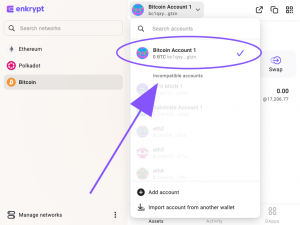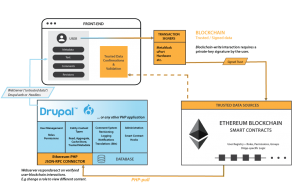Online Programs to Upgrade Your Skills
In today’s rapidly evolving professional landscape, continuous learning is no longer a luxury but a necessity. Online programs offer a flexible and accessible pathway to enhance existing skills and acquire new ones, opening doors to career advancement and personal growth. This exploration delves into the diverse world of online learning, guiding you through the process of identifying skill gaps, selecting suitable programs, and effectively leveraging your newfound expertise.
From technical certifications to creative workshops and business acumen courses, the options are vast and cater to a wide range of interests and career goals. We will examine various program types, compare leading online learning platforms, and discuss strategies for maximizing your learning experience and translating your upgraded skills into tangible career success. The journey to professional enhancement begins with a clear understanding of your aspirations and a strategic approach to online learning.
Types of Online Skill-Up Programs
The online learning landscape offers a diverse range of programs designed to enhance various skill sets. These programs cater to different learning styles, career goals, and time commitments, providing flexibility and accessibility for learners worldwide. Choosing the right program depends on individual needs and aspirations. Careful consideration of factors such as cost, duration, and learning outcomes is crucial for a successful learning experience.
Categorization of Online Skill-Up Programs
The following table categorizes online skill-up programs based on their focus, providing examples of platforms and typical durations. Note that durations can vary significantly depending on the specific course and the learner’s pace.
| Category | Program Type | Example Platforms | Typical Duration |
|---|---|---|---|
| Technical Skills | Coding Bootcamps, Web Development Courses, Cybersecurity Training | Codecademy, Udemy, Coursera, Udacity | A few weeks to several months |
| Creative Skills | Graphic Design Courses, Photography Tutorials, Video Editing Workshops, Music Production Classes | Skillshare, Domestika, Udemy, LinkedIn Learning | A few weeks to several months |
| Business Skills | Project Management Certifications, Marketing Courses, Financial Modeling Training, Leadership Development Programs | Coursera, edX, LinkedIn Learning, Udemy | A few weeks to several years (for certifications) |
| Personal Development | Time Management Courses, Communication Skills Training, Stress Management Workshops, Mindfulness and Meditation Programs | Udemy, Coursera, Skillshare, Headspace (for meditation) | A few weeks to several months |
Advantages and Disadvantages of Online Skill-Up Programs
Each program type offers unique advantages and disadvantages related to cost, time commitment, and learning outcomes.
Technical Skills Programs: These programs often lead to high-demand jobs, but can be intensive and require significant time commitment. Costs vary greatly, from free introductory courses to expensive bootcamps costing thousands of dollars. Learning outcomes range from basic proficiency to job-ready skills.
Creative Skills Programs: These programs offer flexibility and cater to diverse interests. Costs are generally lower than technical programs, with many offering subscription-based access. Time commitment is flexible, allowing learners to work at their own pace. Learning outcomes focus on developing creative abilities and building a portfolio.
Business Skills Programs: These programs can enhance career prospects and earning potential. Costs vary widely, depending on the program’s prestige and certification level. Time commitment can range from a few weeks for shorter courses to several years for professional certifications. Learning outcomes include improved skills in areas like management, marketing, and finance.
Personal Development Programs: These programs focus on self-improvement and well-being. Costs are generally affordable, with many free resources available. Time commitment is flexible, allowing learners to incorporate learning into their daily routines. Learning outcomes include improved self-awareness, stress management techniques, and enhanced communication skills.
Comparison of Online Learning Platforms
The following table compares three popular online learning platforms based on their strengths and weaknesses.
| Platform | Strengths | Weaknesses |
|---|---|---|
| Coursera | Wide range of courses from top universities, structured learning paths, reputable certifications | Can be expensive, some courses require prior knowledge, community support can be inconsistent |
| Udemy | Vast course library, affordable prices, flexible learning options | Quality can vary greatly, less structured learning paths, limited community support on some courses |
| LinkedIn Learning | Focus on professional development, integration with LinkedIn profile, high-quality courses | Subscription-based model, course library is smaller than Udemy or Coursera, less focus on academic rigor |
Identifying Skill Gaps and Choosing Relevant Programs
Upgrading your skills requires a strategic approach. Understanding your current skillset, identifying areas needing improvement, and selecting the right online program are crucial steps towards achieving your career goals. This section Artikels a structured process to guide you through this journey.Self-assessment is the cornerstone of effective skill development. By honestly evaluating your strengths and weaknesses, you can pinpoint areas requiring attention and tailor your learning path accordingly.
This process allows for a focused approach, maximizing your learning efficiency and minimizing wasted time and resources.
Self-Assessment for Skill Gaps and Career Goals
A thorough self-assessment involves several key steps. First, reflect on your past experiences, considering both professional roles and personal projects. Identify tasks you excelled at, highlighting the skills employed. Conversely, note instances where you struggled or felt less confident, pinpointing the skills that were lacking. This process should reveal a clearer picture of your existing skillset.
Next, research your desired career path. Examine job descriptions for roles that align with your aspirations. Compare the required skills with your self-identified skillset. The discrepancies represent your skill gaps. Finally, prioritize these skill gaps based on their importance for your target career and your personal interests.
This prioritized list will guide your program selection.
Researching and Selecting Appropriate Online Programs
Once you’ve identified your skill gaps, researching suitable online programs becomes the next critical step. Begin by considering your learning style. Do you prefer structured courses, self-paced learning, or interactive workshops? This preference will greatly influence your choice of program. Then, search for programs addressing your prioritized skill gaps.
Look for programs offered by reputable institutions, universities, or organizations with a proven track record. Utilize online search engines, professional networking sites, and educational directories to expand your search. Consider factors like program length, cost, curriculum, and instructor credentials.
Checklist for Choosing an Online Program
Choosing the right online program involves careful consideration of several factors. A comprehensive checklist ensures a well-informed decision.
- Accreditation or Qualifications: Verify the program’s accreditation or recognized qualifications. Accreditation signifies adherence to quality standards and increases the value of your certification.
- Curriculum and Content: Review the program’s curriculum to ensure it aligns with your skill gap needs and learning objectives. Examine the course structure, learning materials, and assessment methods.
- Instructor Expertise and Support: Research the instructors’ qualifications and experience. Look for programs that offer adequate instructor support and feedback mechanisms.
- Student Reviews and Testimonials: Read reviews and testimonials from previous students to gain insights into the program’s quality, effectiveness, and overall learning experience. Pay attention to comments on course content, instructor quality, and support services.
- Cost and Payment Options: Evaluate the program’s cost, including tuition fees, materials, and any additional expenses. Check for available financial aid, scholarships, or payment plans.
- Flexibility and Accessibility: Assess the program’s flexibility in terms of scheduling and accessibility of learning materials. Consider factors like device compatibility, online platform usability, and technical support.
- Career Services and Support: Inquire about career services offered by the program, such as job placement assistance, networking opportunities, and resume building workshops.
Effective Learning Strategies for Online Programs
Successfully navigating online learning requires a strategic approach to maximize your time and maintain motivation. This section Artikels effective techniques for time management, motivation, and study methods specifically designed for the online learning environment. By implementing these strategies, you can significantly enhance your learning experience and achieve your skill-up goals.
Time Management Techniques for Online Learning
Effective time management is crucial for balancing the demands of work, personal life, and online learning. Creating a structured schedule allows for dedicated study time without compromising other responsibilities.
- Create a Weekly Schedule: Allocate specific time blocks for coursework, including reading assignments, lectures, quizzes, and projects. Be realistic about the time commitment required for each task.
- Prioritize Tasks: Identify the most important tasks and tackle them first. Use a to-do list or project management tool to stay organized and track your progress.
- Break Down Large Tasks: Divide large assignments into smaller, more manageable chunks. This makes the overall task less daunting and allows for more frequent breaks, improving focus and reducing burnout.
- Utilize Time-Blocking Techniques: Allocate specific time blocks for different activities, scheduling breaks in between. The Pomodoro Technique (25 minutes of focused work followed by a 5-minute break) is a popular example.
- Minimize Distractions: Identify your biggest distractions (social media, email, etc.) and actively minimize them during dedicated study time. Turn off notifications and find a quiet workspace.
Strategies for Maintaining Motivation and Engagement
Staying motivated throughout an online course can be challenging. Employing proactive strategies helps maintain engagement and prevents burnout.
- Set Realistic Goals: Establish achievable goals for each week or module. Celebrating small victories along the way helps maintain momentum and a sense of accomplishment.
- Find a Learning Buddy: Connect with classmates to discuss course material, ask questions, and stay accountable. Mutual support can significantly boost motivation.
- Reward Yourself: Celebrate milestones with small rewards. This positive reinforcement can help sustain motivation over the long term. A reward could be anything from watching a favorite show to enjoying a relaxing activity.
- Connect with the Instructor: Actively participate in online discussions and reach out to the instructor if you have questions or need clarification. This fosters a sense of community and provides valuable support.
- Remember Your “Why”: Regularly remind yourself of your reasons for pursuing the online program. This helps maintain focus and provides the necessary drive to overcome challenges.
Effective Note-Taking and Study Methods for Online Learning
Adapting note-taking and study methods to the online environment is key to effective learning.
- Active Recall Techniques: Instead of passively rereading notes, actively try to recall information from memory. This strengthens memory retention and identifies areas needing further review.
- Spaced Repetition: Review material at increasing intervals. This technique reinforces learning and improves long-term retention. Apps like Anki can help with this process.
- Mind Mapping: Visually organize concepts and ideas using mind maps. This helps to understand relationships between different pieces of information and improves comprehension.
- Digital Note-Taking Tools: Utilize digital note-taking tools like Evernote or OneNote to organize notes, add links, and easily search for specific information.
- Summarization and Paraphrasing: Regularly summarize and paraphrase key concepts in your own words. This deepens understanding and improves retention.
Leveraging Skills for Career Advancement
Successfully completing an online skill-up program is a significant achievement, but the true value lies in translating those newly acquired skills into career advancement. This involves strategically showcasing your enhanced capabilities to potential employers and actively seeking out opportunities that align with your improved skillset. This section Artikels effective strategies to maximize the return on your investment in online learning.
The key to leveraging your newly acquired skills lies in a multifaceted approach that encompasses resume and cover letter optimization, strategic networking, and targeted job searching. Each element plays a crucial role in effectively presenting your enhanced qualifications and securing career advancement.
Resume and Cover Letter Optimization
Crafting a compelling resume and cover letter is paramount to highlighting your newly acquired skills. Your resume should be tailored to each job application, emphasizing the skills most relevant to the specific role. Quantifiable achievements are crucial. Instead of simply listing skills, provide concrete examples of how you applied them, and the positive outcomes you achieved. For example, instead of saying “Proficient in Python,” you might write, “Developed a Python-based data analysis tool that reduced processing time by 25%, resulting in a 10% increase in efficiency.” Your cover letter should expand on these points, demonstrating your understanding of the company and the role, and explaining how your new skills directly address their needs.
A well-structured resume and a personalized cover letter will significantly increase your chances of securing an interview.
Strategies for Online Networking and Professional Connection Building
Online networking platforms like LinkedIn are invaluable tools for connecting with professionals in your field. Actively participate in relevant groups, engage in discussions, and share insightful content related to your new skills. Reaching out to individuals in your desired industry for informational interviews can provide valuable insights and potentially lead to job opportunities. Remember to personalize your connection requests, highlighting shared interests or mutual connections.
Building a strong online presence through consistent engagement and thoughtful contributions will significantly enhance your professional network and increase your visibility to potential employers.
Identifying Job Opportunities Leveraging Newly Acquired Skills
Effectively identifying job opportunities that leverage your new skills requires a targeted approach. Utilize online job boards, company websites, and professional networking platforms to search for roles that specifically mention your newly acquired skills. Leverage s from your updated resume and cover letter in your job searches to optimize your results. Consider using Boolean search operators (AND, OR, NOT) to refine your searches and target specific combinations of skills and job titles.
Furthermore, actively network and attend online industry events to discover hidden job opportunities and build relationships with potential employers. Proactive job searching, combined with strategic use of online resources, significantly increases the chances of finding the right opportunity.
Online Business in 2025
The online business landscape in 2025 is projected to be significantly different from today’s, driven by rapid technological advancements and evolving consumer expectations. We’ll explore the predicted trends, emerging opportunities, and essential skills needed to navigate this dynamic environment.The convergence of artificial intelligence (AI), the metaverse, and increasingly sophisticated data analytics will fundamentally reshape how businesses operate and interact with customers.
Consumer behavior will be further personalized, demanding seamless, omnichannel experiences and a higher level of transparency and ethical considerations.
Emerging Business Models and Opportunities
Several new business models are poised for significant growth in the online marketplace by 2025. These models leverage technological advancements to create innovative solutions and cater to evolving consumer needs. For example, the subscription model, already prevalent, will continue its expansion into diverse sectors, offering customized services and experiences. AI-powered personalized marketing and recommendation systems will become increasingly sophisticated, enhancing customer engagement and driving sales.
The metaverse presents a unique opportunity for businesses to create immersive brand experiences and engage customers in novel ways, such as virtual stores and interactive product demonstrations. The growth of the creator economy, where individuals build businesses around their content and expertise, will also continue its upward trajectory. Finally, the increasing focus on sustainability and ethical sourcing will create opportunities for businesses that prioritize these values.
Skills and Knowledge for Online Business Success in 2025
To thrive in the online business environment of 2025, individuals will need a diverse skill set encompassing both technical and soft skills. Technical skills will include proficiency in data analytics, AI tools, and cybersecurity practices. A strong understanding of e-commerce platforms, digital marketing strategies (including , SEM, and social media marketing), and website development will also be crucial.
Furthermore, expertise in blockchain technology and its applications, such as NFTs and cryptocurrencies, may become increasingly valuable depending on the specific industry. Soft skills such as adaptability, creativity, problem-solving, and effective communication remain paramount. The ability to leverage AI tools effectively, understand and interpret data, and adapt to rapidly changing technological landscapes will be highly sought after.
Strong ethical considerations and a focus on customer experience will also be essential.
Projected Growth of Online Business Sectors
A visual representation of projected online business sector growth in 2025 would show a dynamic landscape. Imagine a bar graph. The tallest bars would represent sectors like e-commerce (particularly personalized and subscription-based models), online education and training, and the creator economy. Moderately sized bars would depict sectors such as digital healthcare services, fintech (financial technology), and the metaverse-related businesses.
Smaller bars would represent sectors experiencing slower but still significant growth, such as online travel and hospitality, and traditional businesses adapting to the online environment. This visual emphasizes the diverse opportunities available within the online business ecosystem in 2025. For instance, companies like Amazon will likely continue to dominate the e-commerce sector, while platforms like Skillshare and Coursera will see significant growth in the online education market.
The creator economy, exemplified by successful influencers and content creators on platforms like YouTube and TikTok, will continue to expand. The growth of the metaverse will create opportunities for new businesses offering virtual experiences and services, mirroring the early stages of the internet’s development.
Closure
Ultimately, investing in online skill-up programs is an investment in yourself and your future. By strategically identifying skill gaps, choosing relevant programs, and employing effective learning strategies, you can unlock new opportunities and achieve significant career advancement. The ever-evolving online business landscape presents a dynamic environment ripe with possibilities for those equipped with the right skills and knowledge. Embrace the flexibility and accessibility of online learning to shape your professional trajectory and thrive in the modern world.
Questions Often Asked
What if I don’t have much free time?
Many online programs offer flexible scheduling, allowing you to learn at your own pace and fit studies around your existing commitments.
Are online programs as effective as traditional classroom learning?
Effectiveness depends on individual learning styles and program quality. Well-structured online programs often incorporate interactive elements and provide ample support to match or exceed traditional learning outcomes.
How do I choose the right online program for me?
Consider your learning style, career goals, program curriculum, instructor credentials, student reviews, and cost before enrolling.
What if I don’t understand something in the course?
Most reputable online programs provide support channels such as forums, Q&A sections, or direct contact with instructors to address questions and clarify concepts.



